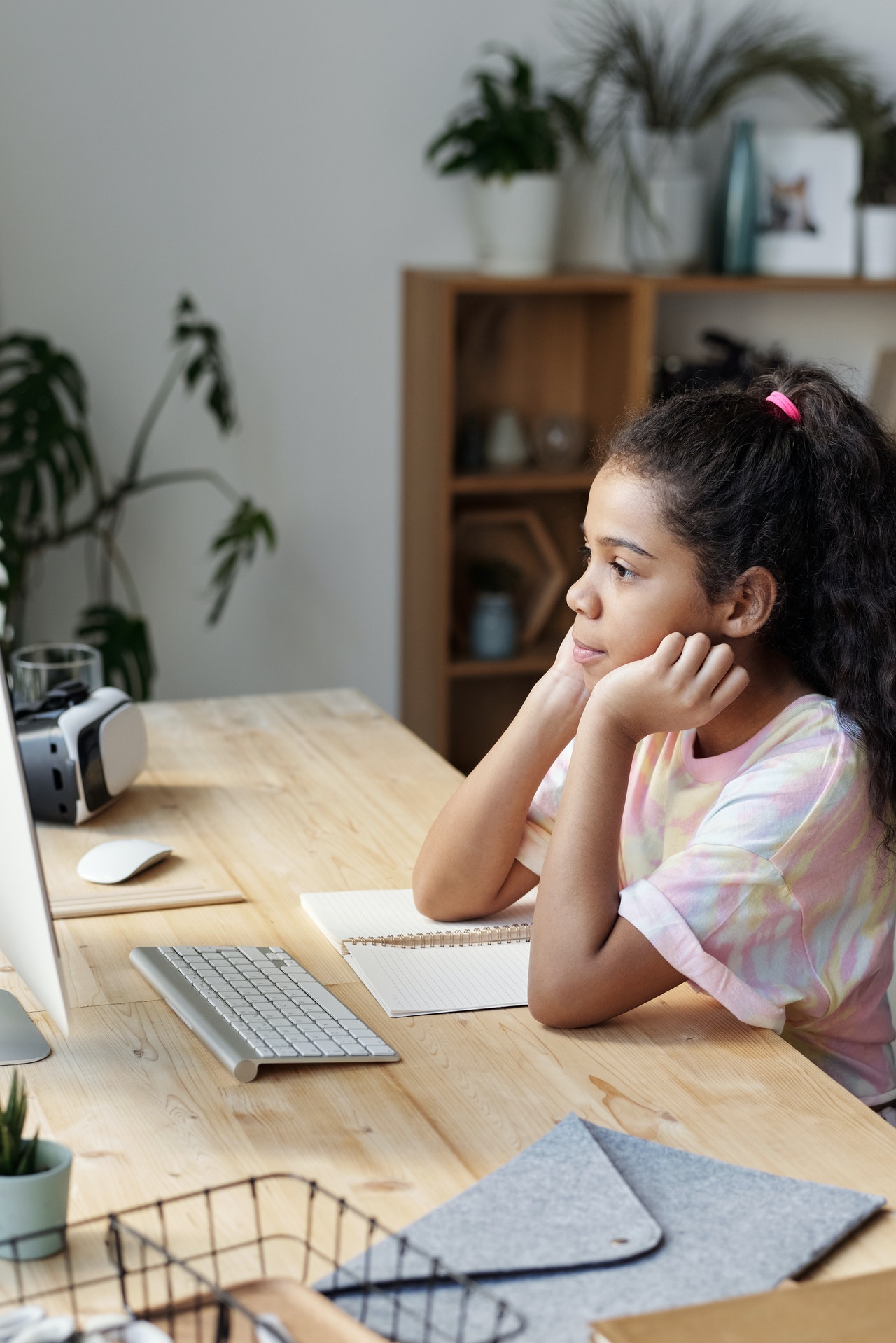As a psychotherapist I sometimes work with unfortunate cases such as online bullying, child grooming and child sexual abuse. For today’s article I wanted to explore how parents and primary care givers can help keep children safe when accessing the internet, especially at a time where we are all using social media as a means of communication.
Discussing the subject of online trolls, predators and paedophilia with our children can be a tricky conversation to have and we may try to hold back some information, with the intent to protect them or not scare them too much. However, not exploring this with them, could leave them vulnerable to these dangers. We want to build that resilience and critical eye in our children so that they have the tools to recognise any risk factors online. If your child is old enough to understand and access the internet, they are old enough to be educated about the dangers of the online world. Sadly, there are people out there that do not care too much about how old children are before subjecting them to awful experiences.
Here are some ways to approach the subject with your children:
Don’t be afraid to explore these subjects with your children. Educate them on how to use the internet safely.
- Have an open and honest discussion about the internet and the positive/negative ways that it can be used and what positive ways your child may be able to use it.
- Discuss the dangers of speaking to strangers online and the possibility that they may not be who they say they are. Make them aware that the person may be older or a different gender to what they claim to be and if they have been talking to someone online, to never meet these strangers by themselves and to always speak with you if they would like to meet a friend that they’ve met online face to face for the first time.
- Explore boundaries with your children such as having a fixed time every day to access the internet, showing them the privacy settings and that they do not have to share personal/identifying information online.
- Explore with them some of the online dangers that they are at risk of being exposed to such as: Online bullying, being threatened, being pressured to view/send nude or inappropriate pictures of others/themselves. Being told by a ‘friend’ online to meet up but not to tell anyone about their friendship because “people won’t understand their relationship”
- Teach them how to report/block abusive users and to encourage them always talk to you about this no matter how embarrassed or scared they may have been made to feel.
- Lead by example. If your child constantly sees you on your phone or tablet then encouraging them to utilise these coping strategies into their own lives could be challenging.
- Try to be aware of what apps/websites/online chats they are accessing and whether they are underage for some of those sites.
Always encourage your children to talk to you about anything especially in tough times.
Children can be exceptionally good at absorbing the mood in the house, they will be able to pick up on their parent’s feelings and current difficulties. This can make them feel hesitant in reaching out to their parents for support. They may fear adding to the stress at home or not want to be a “burden” to anyone. This may result in seeking comfort from likeminded people online, which of course can be a risk factor if they are talking to the wrong person. Online predators look for children who are experiencing turbulence in their lives and are feeling isolated and vulnerable because of this.
Reassure your child/children that no matter what is happening currently in your lives, no matter how sad/stressed you might be with your current circumstances i.e. separation/divorce/bereavement/finances etc. You are always ready to listen to your child’s concerns and their feelings will always be important to you no matter how insignificant they may think it is.

Teach your children about the impact social media can have on our perception of beauty, body image & ‘perfection’
Young adults may start to compare themselves to the ‘happy’ or ‘perfect’ images that are being portrayed by friends or celebrities on social media. They may question why they do not look or feel the same way as these other people. Their self-esteem and mental health can be impacted by this false perception of perfection and constant happiness.
- Have an open and honest conversation about some of the images may cause your child to question their own self-image, help to normalise and accept their own unique features and body shape. Reassure them that we are all supposed to look different from each other, but we all possess this beauty.
- Lead by example. If your child is watching you comparing yourself to others or criticising your own looks and body image, it is quite easy for them to start questioning theirs. Start to incorporate language in your household that promotes healthy body image, self-love, and acceptance.
- Make them aware that the people they view on social media are not painting a complete picture about their lives. That most people only post pictures of themselves when they are happy or doing something fun and interesting. They are more likely to share pictures of themselves from a certain angle/lighting that they believe make them look “good” and these images may even be airbrushed or filtered.
- Make them aware that behind closed doors, everyone has their own body/health concerns and insecurities no matter how popular/famous they may be.
- Ensure them that their day to day life is very normal and that we all have days when we feel down/insecure/bored etc and that the concept of perfection is not being used correctly when comparing ourselves to false images/ideologies on social media.
- Help your children understand that there is nothing wrong with having days when we feel down/tearful/sad/angry etc. Ensure them that these feelings are all very normal and a part of life and helping us understand ourselves, and that they do not have to deny these feelings. Its not ‘weak’ to feel sad and have a cry sometimes.
Educate your children about pornography
Young people can become exposed to many pornographic images online, this may influence their perception of what sex and relationships are supposed to look like in real life.
- Explore with your child how some of the pornographic images can portray a false image about the role of men/women and sexual relationships and that they are not expected to behave in the same way when they reach the appropriate age for sexual activity.
- Make them aware of the age of consent regarding sexual activities, inappropriate language/touch so that they are aware of boundaries and what crossing those boundaries can look/feel like.
- Explore what consent is, respecting boundaries and not forcing oneself to do something that they do not want to do.
Some final pointers:
- Encourage your children to embrace the outside world, giving them the confidence to take part in hobbies/activities that they are interested in.
- You could also try to encourage them to do things that you enjoyed doing as a child like riding a bike, camping, fishing, exploring etc. Find an activity that helps you and your children bond together. This can help build that trust between you so that your child always feels confident to confide in you regarding their troubles or concerns. This can also help create a healthy self-esteem and a balanced life for your child where they are able to engage with people and activities in their external environment and have less of a need to create an online image/persona and relying on the likes they may get from sharing a post or image.
- Of course it’s great to pass on the valuable lessons that you learned as a child but also remember that our children have been born into a different era, they will be exposed to new dangers/learning experiences in their lifetime, so its always worth being mindful and updating ourselves to these new dangers and how perpetrators can adapt themselves and use this online world to their advantage. Its always worth listening to our children’s perception of the world with an open mind as we have just as much to learn from them as they do from us.
- Finally, we do not just want to start warning our children about these dangers when they start happening. We want to start building that foundation early on that ensures a secure self-esteem and resilience to recognise these risk factors; to recognise a breach in personal boundaries and to have the courage to communicate their concerns to the support network that has been put in place for them.
Thank you for taking the time to read this article. Stay safe.
Sedef
x

